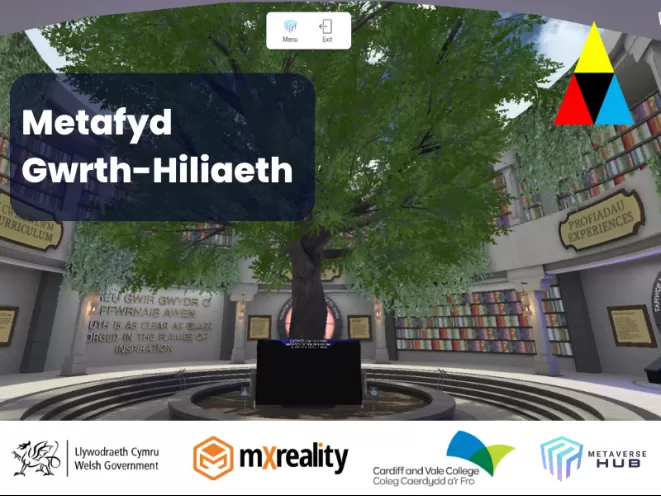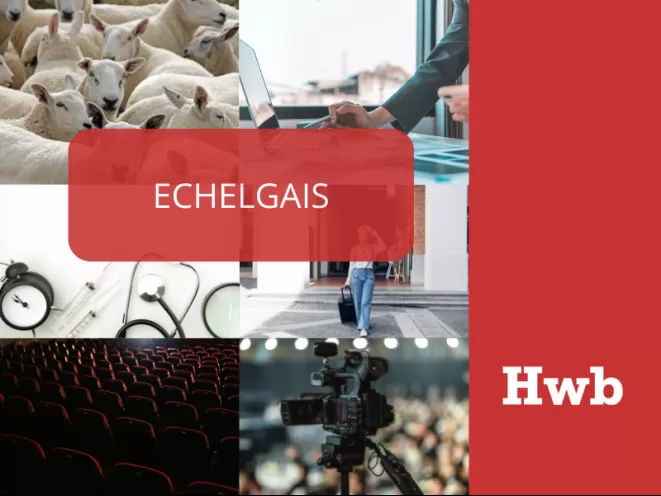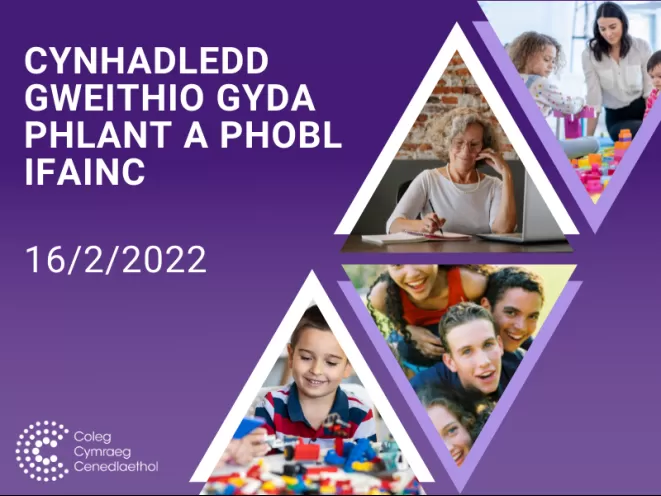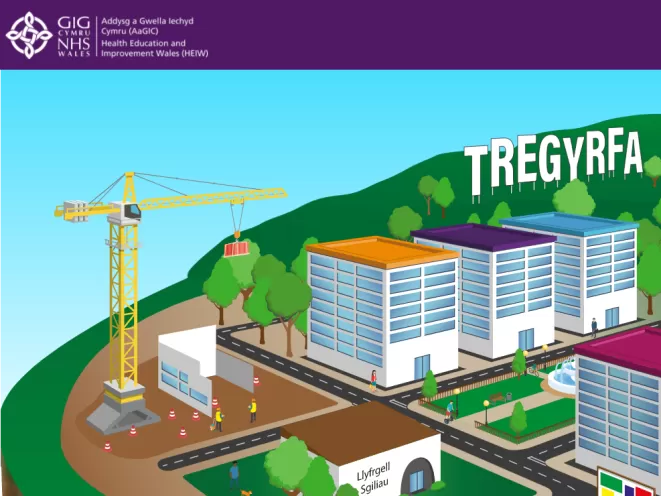In collaboration with mXreality, and working with teams specialising in the subject from Cardiff and Vale College, the Welsh Government has developed an immersive, accessible and expansive 3D metaworld environment, comprising of five areas relating to different themes. They look forward to sharing their experiences, stories and anecdotes with you, and you are invited to engage in an immersive learning experience, which will enhance your understanding of the world. As you explore this world, you are asked to engage with the resources and reflect on their significance. This is an opportunity for you to learn about the cultures and traditions that make up part of our shared identity. The Metaworld consists of the following sections: Experiences The Metaworld of Experiences is situated on a street of representative semi-detached houses in Wales, with access to six houses (three on each side of the street). In each of the houses, you can learn more about the background and interests of the individuals who live there by watching the video playing on the TV and by clicking on some of the interactive items (identified by a three spot icon) in the living room. Immersive Studies The Immersive Studies Metaworld consists of a main lower level area and three upper level areas. The main area has a variety of items of geometrical interest because of their shapes and patterns, which show the connection between mathematics, science and nature. You can learn more about these items by clicking on them. A QR Code is also visible on a panel near some items, which can be scanned with your mobile phone's camera to view a 3D or Augmented Reality (AR) version of the item on your device. The higher level includes: Mathematics room – allows visitors to explore the importance and history of mathematical and geometrical numbers and shapes Hair and Beauty Room – allows visitors to familiarise themselves with the history and origins of hair and beauty Inventions Room – educates visitors about some significant inventions and early contributions to contemporary life World Timeline The World Timeline Metaworld consists of a main central area and four geographic regions, all of which you can access via a tunnel from the central area. Each tunnel displays information that presents the background, identity and image of a representative individual from that region. Each of the four regions (detailed below), comprises four time periods, allowing visitors to experience architecture, images, and representational information in relation to ancient times, medieval times, early modern times, and the world today. The four regions available in this Metaworld are: Africa, Indian Subcontinent, Middle East and Northern Europe. As you move around the world timeline, in the central area and in each of the regions, interactive items you can click on link to videos that present useful additional information. QR Codes are also available in some of the regions, which can be scanned with your mobile phone's camera to view a 3D or Augmented Reality (AR) version of the item on your device. Curriculum This section allows you to engage with a wide range of carefully crafted topics in order to surmise that their plan will be anti-racist. The section consists of the following topics: Sociology Hair & Beauty Health and Social Care Black Feminism Politics Mathematics Film Studies African philosophy English for speakers of other languages Basic Education for Adults Additional Learning Needs Tutorial
Welsh Government Anti-Racist Virtual World
Am Blant podcast
A podcast that deals with and discusses topics that affect children and young people in Wales today as well as finding out the opinions of children and young people. A podcast that deals with and discusses topics that affect children and young people in Wales today as well as finding out the views of children and young people. Podcast #1: What is Childhood? In this first podcast Dr Nia Young, Dr Sian Wyn Siencyn, Rowena Hughes Jones and Ceryl Davies discuss what childhood means, what it means to be a child in Wales today and whether society listens to the child's voice . Podcast #2: What is youth? In this episode Dr Nia Young, Dr Sian Wyn Siencyn, Owain Gethin Davies, and Ceryl Davies discuss what is youth? What is it like to be a young person in Wales today? Podcast #3 What does a child need...? What does a child need in order to grow, develop and thrive? In this podcast Ian Keith Jones (Head of Ysgol San Siôr, Llandudno) joins Dr Nia Young, Dr Siwan Roberts, Dr Margiad William and Rowena Hughes Jones from the School of Education Sciences, Bangor University to discuss what a child needs to develop and flourish. How important are role models, consistency and stability? What is being a good parent? Podcast #4: Children's Rights In this podcast, Rowena Hughes Jones, Dr Ceryl Davies, Gwenan Prysor, Arwyn Roberts and the Children's Commissioner for Wales, Professor Sally Holland, join Rhian Tomos to discuss the rights of children and young people. Do children know what rights they have? Is it necessary to add to the rights in light of Covid 19? Podcast #5: Voice of Parents Have society's attitudes changed towards children and young people with learning needs or physical disabilities and how has the period of Sorrow affected them? Are we listening enough to the parents and carers? To find out more listen to Elin Llwyd Morgan, Joel's mother (Joel has autism), Siôn Meredith, Huw's father (who has Down Syndrome), Dr Nia Young (lecturer at Bangor University), Bethan Morris Jones, (Principal of Ysgol Pendalar, Caernarfon) and Lora Glynwen Williams, Quality Officer, Gwynedd and Anglesey A&E Service. Podcast #6: What is play? What is play? When do we stop playing? What is the purpose of play? Listen to the 6th podcast in the AM BLANT podcast series to hear the discussion from the panel members and young people's comments about their experiences of playing. Podcast #7: How do music, art and drama contribute to a child's development? A podcast recorded live on the Tregaron Eisteddfod field with Dr Gwenllian Lansdown Davies, Cerys Edwards, Elen ap Robert, Dr Mair Edwards and Dr Nia Young.
Echelgais (Welsh only)
A Welsh medium resource on the HWB website aimed at Post-16 learners, concentrating on 6 subject areas: Agriculture, Business, Drama, Leisure and Tourism, Health and Care and Early Years and the Media.
Working with Children and Young People Conference (16 Feb 2022)
Free online conference on possible career options for those wishing to work with children or young people (not including teaching). The conference was held on Wednesday 16 February 2022 through the medium of Welsh with no simultaneous translation. 1.00: Keynote Speaker – Gwenllian Lansdown Davies, Chief Executive of Mudiad Meithrin 2.00: Employability Panel – The Urdd (Aled Pickard), Academy Arts Performing School and actress (Jalisa Andrews), GISDA (Siân Elen Tomos), Play Wales (Matthew Jenkins) 2.50: BREAK 3.00: Enterprise – a talk with Gwenllian Stephens who set up Cwtch Nursery in Carmarthenshire 3.30: Further Qualification Panel – learn about pursuing other courses after leaving college; speech therapy (Catrin Phillips), probation (Eirian Evans), social work (Gwenan Prysor, Bangor University) and university research (Cadi Siôn, Bangor University) 4.15: Open discussion 4.30: Finish Recordings of the individual sessions can be veiwed below:
Careersville
This is an interactive digital resource containing information on jobs and opportunities in health and care in Wales. The Tregyrfa website has been developed by Health Education and Improvement Wales (HEIW). Tregyrfa aims to share information about the wealth of job opportunities available within the National Health Service (NHS) and care sector.
Training resource to support bilingual working: Language, dignity and care
Training resource to support bilingual working: Language, dignity and care
The following pack is for individuals who wish to introduce a language awareness training session for their learners. The duration of the session is one hour. The course is suitable for: Level 1, 2, 3, 4 and 5 health and social care or childcare students tutors and assessors in colleges social care/work or childcare students in universities. It could also be used as part of in-service training for workers in these areas and the Social Care Wales workforce. The pack aims to equip trainers to present information about language and discuss how to work bilingually with their learners. It is intended to share information that will educate and empower learners to offer a valuable service to their service users ensuring that language is always a central consideration. The pack is presented in PowerPoint format with trainer notes to support each slide. The trainer notes present a lead script, in addition to offering a few ideas about how to present tasks and encourage learners to be proactive in the session.






